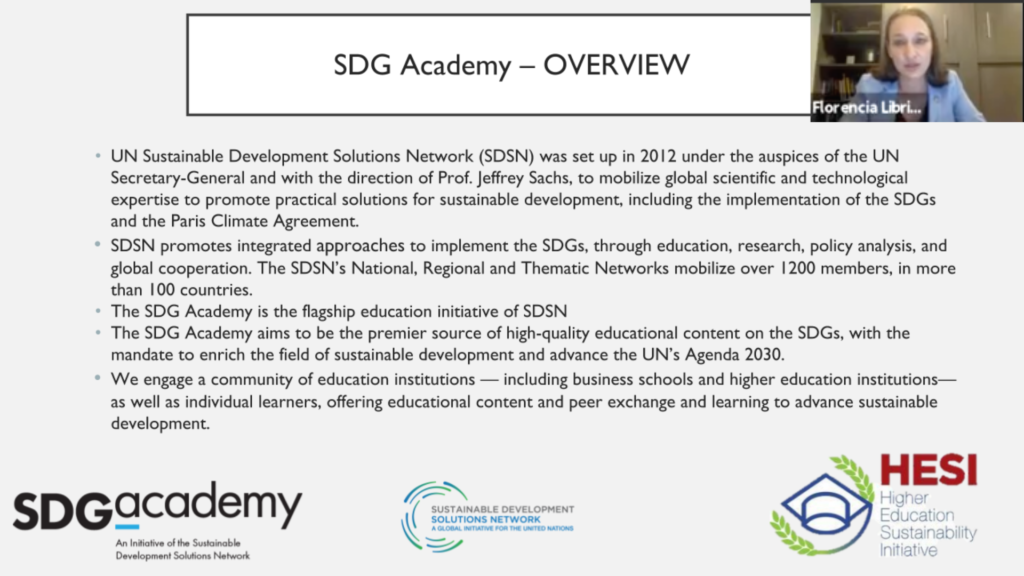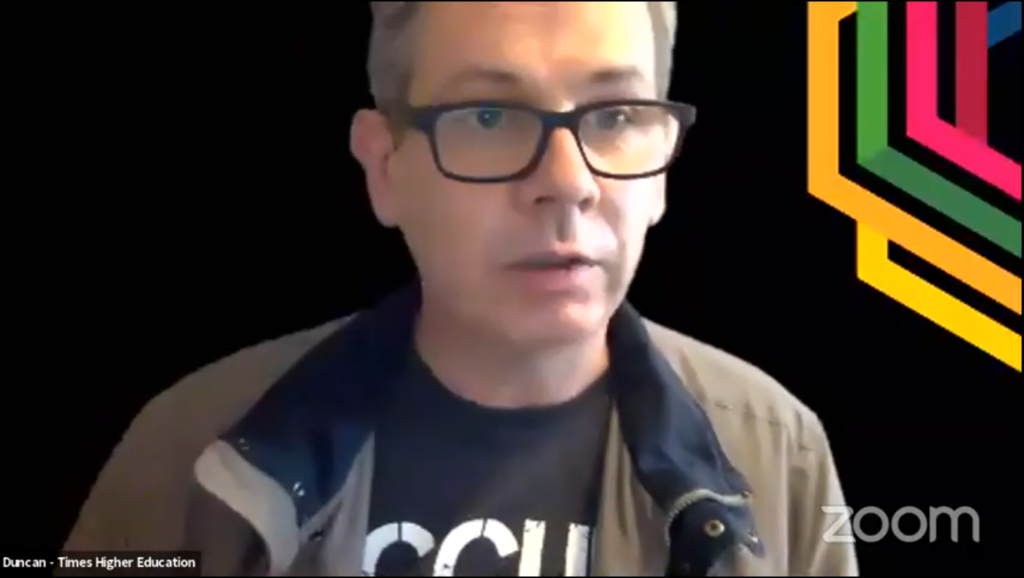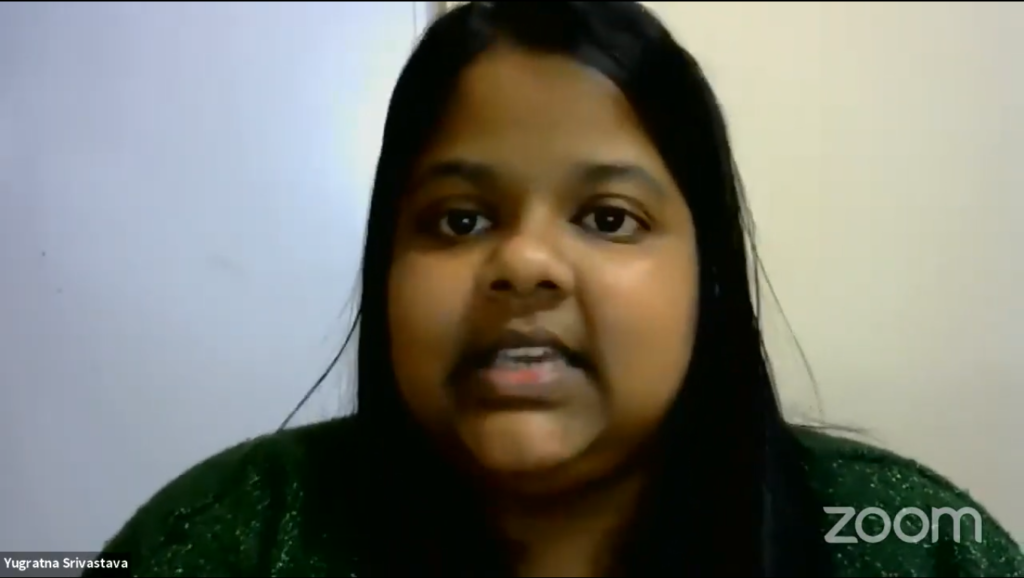How do we integrate the voice of students in the conversation on education for sustainable development? How do we advocate for an interdisciplinary approach to sustainability education within the siloed structures of universities?
On July 15, the Higher Education Sustainability Initiative (HESI) hosted a roundtable discussion of HESI partners to follow up on its July 8 Special Event. The SDG Academy was once again proud to co-host and offer technical support for the meeting.
The event gave HESI partners an opportunity to share their work and reflect on next steps for the Initiative in light of the July 8 conversation.
Mr. Sam Barratt, HESI Co-chair and Chief of Youth, Education and Advocacy at UN Environment, opened the forum by reiterating its goal: to hone in on specific contributions that HESI can make to higher education in the coming year.
The SDG Academy’s Head of Program and Partnership Florencia Librizzi, also a HESI Co-Chair, outlined objectives for the first session of the event: a lightning round where partners presented their organization’s activities, goals, and contributions to HESI.
Each featured partner, which included UN agencies, higher education consortia, and non-profit organizations, showcased their projects, elaborated their key findings from the year, and detailed their goals for the future, including opportunities for collaboration with and within the HESI community. In his summarizing remarks, Mr. Barratt celebrated the collaborations between organizations, such as the New York Partnership and the Climate Action Guide, and emphasized the importance of working together. He also commended tools such as the Sulitest, the IA Youth Portal, Green Nudges, and International Green Gown Awards, which had been highlighted during the presentations.

An open discussion on next steps for HESI followed. Dr. Hilligje van’t Land, Secretary General of IAU, introduced the idea of including individual universities, in addition to university consortia, as stakeholders. Duncan Ross, Data and Analytics Director of Times Higher Education, brought up cuts to education funding due to the COVID-19 pandemic, and proposed that the HESI partnership work collectively to advocate for more government funding for education.

Dr. Debra Rowe, who holds roles with several HESI partners, including President of the U.S. Partnership for Sustainable Development, built on Mr. Ross’s statement, stating that sustainability in higher education needs to be more than a PR campaign. Universities must use their influence to reach out to governments. Jim Longhurst of the Climate Commission for UK Higher and Further Education Students and Leaders commented that it was crucial to include the voice of the students in conversations around education reform. Youth leader Yugratna Srivastava echoed Dr. Longhurt’s statement and called for HESI to convene a youth-led student engagement mechanism.

As the conversation wrapped up, Mr. Barratt reiterated partners’ call for HESI to advocate for higher education reform at the government level. He also observed that HESI needed better geographical representation, especially from Asia and Africa. Florencia concluded the meeting by commending the partners on their good work and commitment to HESI’s mission.
A recording of the meeting is available on YouTube.


